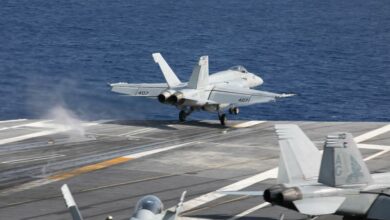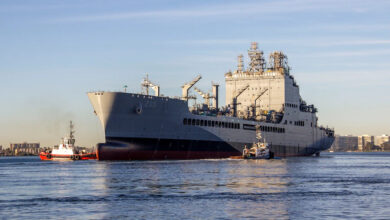US, South Korea Complete ‘Silent Shark’ Anti-Submarine Exercise
The US and South Korea have completed the “Silent Shark” anti-submarine warfare exercise near Guam amid increasing tensions with nuclear-armed North Korea.
The biennial exercise was held to improve maritime interoperability between the two allies.
Taking part in the drill were the Los Angeles-class fast attack sub USS Topeka (SSN-754), Sonwonil-class diesel-electric sub ROKS Jung Ji (SS-073), and maritime patrol and reconnaissance aircraft from the “Fighting Tigers” from Patrol Squadron (VP) 8 and Republic of Korea Navy squadron 611.
Closer engagement has occurred recently between Washington and Seoul in response to heightened nuclear threats from the north.
For example the aircraft carrier Ronald Reagan visited Busan this month, provoking an angry response from Pyongyang which said it showed the US had undertaken the “most serious phase” of preparation for a potential nuclear war.
In July, North Korea’s defense minister said a port visit of a US nuclear-capable submarine to South Korea could meet the legal conditions under which Pyongyang would use its nuclear weapons.
Exercise Silent Shark
Exercise Silent Shark is a biennial anti-submarine warfare exercise between the US and South Korean navies first held in 2007.
The Pacific exercise focuses on improving cooperation in submarine tracking and engagement.
During the drill, the Jung Ji submarine completed several port visits to the US Naval Base Guam.
The maneuvers stressed realism in detecting and addressing underwater threats in the region.
“We significantly increased our ability to carry out joint operations for TASW through fierce, realistic training,” Jung Ji commanding officer Kim Il-bae said. “We will deter enemy aggression and are ready to firmly defend our seas.”
USS Topeka commanding officer James Fulks added that the drills maintain the countries’ readiness at the highest level.
“Our increasing interoperability with [South Korean] submarines promotes democracy and provides security for the region,” he said.












